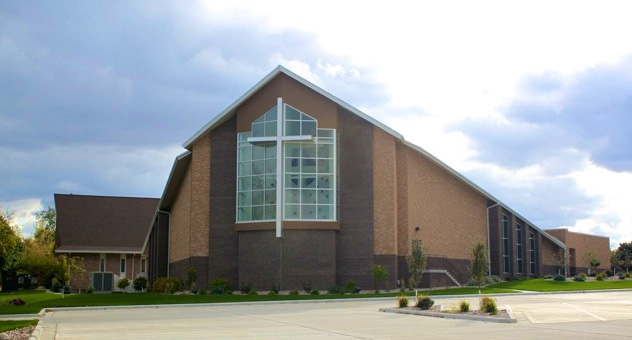As I’ve driven around the countryside this past week, it’s been interesting to see how the soybean crop is maturing. There is one field about five miles south of Luverne that is particularly interesting in that there are plants that are only about six inches tall that are dead and ready to be harvested, and yet within the same field there are bean plants that are tall and green and are still maturing. Even from the road it’s clear that the short dried out beans will produce very little while the tall plants will produce an abundant crop.
As I thought about the wide variety of maturity in this soybean field, I wondered what kind of planter the farmer had that he could plant several different varieties of beans within the same pass. I wondered if the farmer did this on purpose to create some kind of artwork for us to enjoy this fall. And then I thought it was interesting how spotty the rains must have been; one part of the field had abundant rain while other parts must have experienced no rain at all.
OK, by now you know me well enough to know what I was thinking of next. As I was reflecting on this field, what Bible story was I thinking about? Who told the story? And where is the story found—Old Testament or New Testament? Yes, the parable that Jesus told is recorded in Mathew 13, Mark 4, and Luke 8. And based on the story, what was the harvest most dependant on? Yes, it was the type of soil, right? The reason the soybean field I was looking at was so different was because of the differ types of soil.
From Mark 4:14-20, 14 “The farmer plants the Word. Some people are like the seed that falls on the hardened soil of the road. No sooner do they hear the Word than Satan snatches away what has been planted in them.
16-17 “And some are like the seed that lands in the gravel. When they first hear the Word, they respond with great enthusiasm. But there is such shallow soil of character that when the emotions wear off and some difficulty arrives, there is nothing to show for it.
18-19 “The seed cast in the weeds represents the ones who hear the kingdom news but are overwhelmed with worries about all the things they have to do and all the things they want to get. The stress strangles what they heard, and nothing comes of it.
20 “But the seed planted in the good earth represents those who hear the Word, embrace it, and produce a harvest beyond their wildest dreams.”
And so after reading the scripture, what might be my next questions? That’s right, the next questions the parable raises for me are: What type of soil am I? If God were to look down on American Reformed Church as a field where he has sowed his Word, would he see that I’m rich black soil, light sandy soil, or hard as stone soil? Is his Word being choked out by the worries and idols in my life?
Has his Word taken deep root in my life, and through the power of the Holy Spirit, is my life producing a harvest of righteousness and peace as well as tens and hundreds of new disciples? And as one who stands in the same field as I, how would you answer those same questions?
May it be said of ARC, that we are people who stand in good, rich, black soil, yielded to the Holy Spirit, growing and eagerly ready to produce a harvest beyond our wildest dreams!
Laboring for the Harvest, Mike








